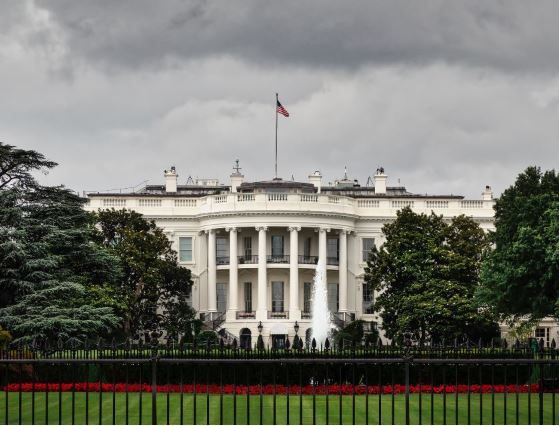Famotidine and COVID-19: One theory is that the effects seen with famotidine are related to the drug's antagonism or inverse-agonism of the histamine-2 receptor. That model posits that SARS-CoV-2 infection is at least partially mediated by pathological histamine release.
- Clinical Technology
- Adult Immunization
- Hepatology
- Pediatric Immunization
- Screening
- Psychiatry
- Allergy
- Women's Health
- Cardiology
- Pediatrics
- Dermatology
- Endocrinology
- Pain Management
- Gastroenterology
- Infectious Disease
- Obesity Medicine
- Rheumatology
- Nephrology
- Neurology
- Pulmonology
The Presidential COVID-19 Treatment Regimen-to-date
From daily aspirin to RGN-CoV2 to zinc, the president of the United States has been treated for COVID-19 with a wide range of both authorized and unproven therapies.

Late Friday morning, October 2, 2020, after having notified the American public that he had tested positive for COVID-19, it was reported that President Donald J Trump had a “high fever” and that his oxygen saturation was “transiently dipping below 94%.” His personal physician Sean Conley, DO, reported that he was experiencing no dyspnea but was feeling tired.
O2
He received supplemental oxygen and after 1 minute on 2L, his saturation returned to >95%; he remained on the oxygen for approximately 1 hour and then went about his business.
Famotidine
On Friday afternoon, the president took zinc, vitamin D, famotidine, melatonin, and a daily aspirin. While there was no information available on whether this is a regular daily regimen for the president, famotidine in small studies has been associated with modest improvements in those infected with the SARS-CoV2 virus.
A recent systematic review and meta-analysis that included 5 eligible studies reported low quality evidence suggesting a “likely clinical benefit for the use of famotidine in decreasing mortality in hospitalized patients with moderate to severe COVID-19.” It is not clear if this is the reason it was given to the president.
Regeneron antibody cocktail
Also, on Friday afternoon the president received a single 8-gram intravenous dose of the experimental antibody therapy REGN-COV2, currently under investigation by biotechnology company Regeneron. The cocktail combines a monoclonal antibody that targets the SARS-CoV2 spike protein and another antibody that targets a different part of the novel coronavirus.
On September 29, 2020, Regeneron announced results from the first 275 non-hospitalized patients (of the 1000 enrolled) in a late-stage trial that showed that the treatment was safe and seemed to reduce viral levels and improve symptoms in outpatients with COVID-19. Greatest improvement was seen in patients who had yet to mount a detectable immune response. The treatment also appeared to reduce the need for medical visits among this group of patients.
Regeneron Study Patient Population: Among the first 275 patients, approximately 56% were Hispanic, 13% were African American, and 64% had one or more underlying risk factors for severe COVID-19, including obesity (>40%). On average, patients were aged 44 years; 49% of participants were men.
The data have yet to be peer reviewed nor has Regeneron been issued an emergency use authorization for the drug. Regeneron said it provided the drug after receiving a "compassionate use" request from Trump's doctors.
Remdesivir
Also on Friday, before being transported to Walter Reed National Military Medical Center, the president received the first intravenous dose of a 5-day course of Gilead Science’s experimental antiviral remdesivir. Remdesivir was originally granted FDA emergency use authorization (EUA) in May, but only for patients hospitalized with severe COVID-19 who required supplemental oxygen or mechanical ventilation. Late in August FDA extended the EUA for remdesivir to all patients hospitalized with COVID-19, regardless of the severity of their disease.
On Friday evening, the president was taken to Walter Reed National Military Medical Center.
Dexamethasone
On Saturday, October 3, 2020, it has been reported, in response to transient low oxygen levels, the president was administered IV dexamethasone. Dr Conley, the president’s personal physician, was quoted by CNN as saying, "We decided that in this case the potential benefits early on in the course [of the infection] probably outweighed the risks.”
The reason for this statement would appear to be that the anti-inflammatory drug so far has been used only for COVID-19 patients hospitalized with severe respiratory complications requiring supplemental oxygen and in some cases ventilation.
Preliminary results of the large randomized RECOVERY trial, (University of Oxford) released in mid-June, found that a low-dose regimen of dexamethasone for 10 days reduced deaths by a third among hospitalized patients requiring ventilation.
In the United States, dexamethasone has been used to treat some COVID-19 patients since early on in the pandemic -- but some doctors previously have warned "it is not a treatment for mild disease."
Current guidelines on the use of dexamethasone from the National Institutes of Health state: "The Panel recommends against using dexamethasone for the treatment of COVID-19 in patients who do not require supplemental oxygen."
Early Monday evening, October 5, 2020, the president was discharged from Walter Reed and transported back to the White House. His specific current course of treatment is not known although it has been stated that he will complete the recommended 5-day course of remdesivir.
